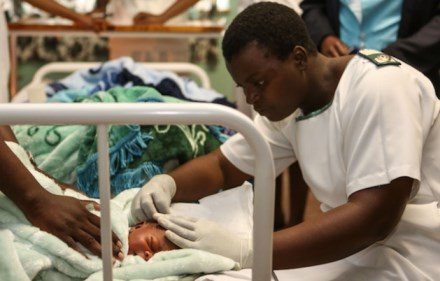THE number of women and babies dying during childbirth at Mpilo Central hospital has significantly gone down as a result of interventions by government and partners, an official has said.
This is a result of free health care provided to expecting mothers under the Results Based Funding model (RBF), jointly funded by the government and the World Bank.
Under the programme, more and more expecting women now deliver at health facilities, without paying, and are no longer at home. Some of the funding also goes towards in centives for health workers, procurement of medicines and renovation of infrastructure. Principal nursing officer at Mpilo Central Hospital, a beneficiary of RBF, Phineas Sithole said the fund had boosted operations in the maternity unit.
“After we embarked on RBF, even our maternal and neonatal mortality rate actually reduced. Mpilo has successfully managed to reduce maternal mortality rate. The RBF programme is a vehicle which is helping us reduce maternal and neonatal mortality,” he said.
Sithole said Mpilo hospital was also reducing other infections that contributed to the death of pregnant women and babies like syphilis and HIV. He said before the introduction of RBF in 2014, Mpilo’s maternity unit had resource constraints and the hospital would often ask relatives to chip in, which was causing a lot of delays.
“Now that we can buy our things; the number of people who raise complaints about delays related to resources has drastically gone down and our timeframe in intervening has also improved. “Our resource base has really improved. We are talking of papers, antibiotics, surgical sundries like abdominal swabs, suture mate rials; all those things have greatly improved including stationery,” he said.
Sithole said using RBF funds, Mpilo’s maternal section has also undergone a facelift. “We have improved our plumbing, drain age system and installation of items like sinks to enhance hygiene. With the coming of RBF, that component of infrastructure development has really helped a lot. We repaired windows, toilets. It makes the place very much habitable,” he said. —New Ziana

